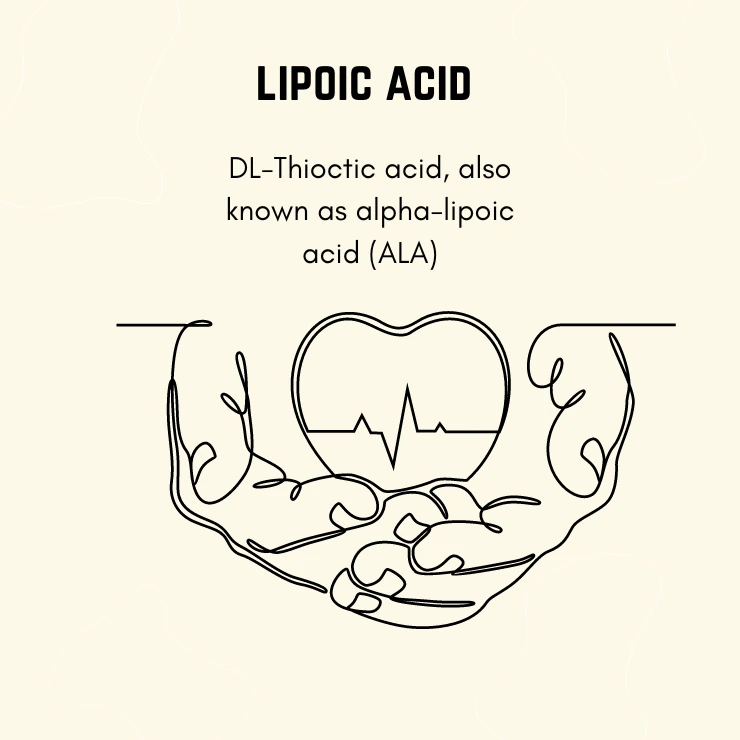Dl-thioctic acid, also known as alpha-lipoic acid (ALA), is a naturally occurring compound that’s made in the body and acts as an antioxidant. It is used in the body to break down carbohydrates and to make energy for other organs. Here are some key points about DL-Thioctic acid:
Key Points about DL-Thioctic Acid:
- Chemical Nature:
- Formula: C8H14O2S2
- Other Names: Alpha-lipoic acid, thioctic acid, 1,2-dithiolane-3-pentanoic acid.
- Antioxidant Properties:
- It functions as a powerful antioxidant in both its oxidized and reduced forms.
- It helps to neutralize free radicals and regenerate other antioxidants like vitamin C and vitamin E.
- Health Benefits:
- Diabetes: Often used to help manage blood sugar levels and reduce symptoms of diabetic neuropathy.
- Neuropathy: Helps alleviate pain, tingling, and numbness associated with nerve damage.
- Skin Health: Used in some skincare products due to its antioxidant properties.
- Liver Health: Supports liver function and may help in conditions like hepatitis and liver cirrhosis.
- Dietary Sources:
- Small amounts can be found in foods like spinach, broccoli, potatoes, liver, and yeast.
- Supplementation:
- Available in various forms including capsules, tablets, and intravenous preparations.
- Commonly used as a dietary supplement for its potential health benefits.
- Dosage and Safety:
- Typical doses range from 300 to 600 mg per day, although this can vary based on individual needs and health conditions.
- Generally considered safe, but possible side effects can include gastrointestinal issues, skin rashes, and potential interactions with other medications.
- Mechanism of Action:
- Participates in mitochondrial energy metabolism.
- Acts as a cofactor for several enzymatic complexes involved in the oxidative decarboxylation of pyruvate and alpha-keto acids.
DL-Thioctic acid is valued for its broad range of potential health benefits and is used both as a supplement and in medical treatments, especially for its antioxidant properties and its role in energy metabolism.








